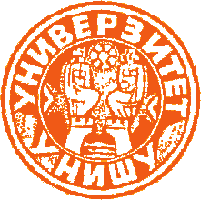The Role of the Serbian Orthodox Church in the Protection of Minorities and "Minor" Religious Communities in the FR Yugoslavia
The Role of the Serbian Orthodox Church in the Protection of Minorities and "Minor" Religious Communities in the FR Yugoslavia
Author(s): Milan VukomanovićSubject(s): History
Published by: Универзитет у Нишу
Summary/Abstract: In this paper the author stresses the importance of more prominent social and political-symbolical roles that churches and religious communities in the FR of Yugoslavia (FRY) may and, in this view, should assume, especially in the most recent period after the cessation of armed conflicts in the Balkans. Two major ways have been suggested in which this might be initiated: 1) the significance of serious, in depth, inter-religious and interconfessional dialogues; 2) the need for a more active participation of the churches not only on the behalf of their own believers, but also on the behalf of other (e.g. the so-called "minor(ity)" religious communities). In other words, will religious organizations be able to participate in concrete programs and actions whose goals are the protection of human rights, minorities, democracy and religious pluralism? Unfortunately, this is exactly what is missing today on the public agenda of religious communities in most of the former Yugoslav republics, including the FRY. The author contends that the reasons for such passivity and restrain are political , rather than religious, in their nature. Because of the political reasons, the churches are mainly silent today (with respect of the aformentioned issues) or, at best, they are too formal in their proclamations to be taken seriously enough. In the FRY this applies, in particular, to the role of the Serbian Orthodox Church (SOC), because it is the most influental religious organization in this country. Considering the significant delay in the process of the political and economic development of the FRY during the nineties, one may expect that the process of modernization and democratization of the country will represent a new challenge for this institution. For many decades after the WW II it has sought to find a modus vivendi between the two ideological alternatives, i.e. communism vs. Serbian nationalism. As a rule, its pendulum gravitated towards the second pole of this dichotomy. However, gradual changes in the Yugoslav political culture, economy, family, education, information systems, etc., will inevitably be reflected upon the life of both non-believers and believers, and thus on the SOC as a whole. As a majority religious organization in the FRY and a proponent of the highest ethical principles and standards, it has an opportunity to demonstrate leadership in the ecumenical movement of this region by going (at least in its ecclesiastical politics) beyond its traditional, ethnic horizon. This, of course, means that genuine, civic patriotism may prove to be a more fruitful alternative than persistent nationalism: protection of universal human rights in a more general, Christian sense – an alternative to protecting just the rights of the Serbian nation.
Journal: FACTA UNIVERSITATIS - Philosophy, Sociology, Psychology and History
- Issue Year: 1999
- Issue No: 06 special
- Page Range: 15-22
- Page Count: 8
- Language: English

